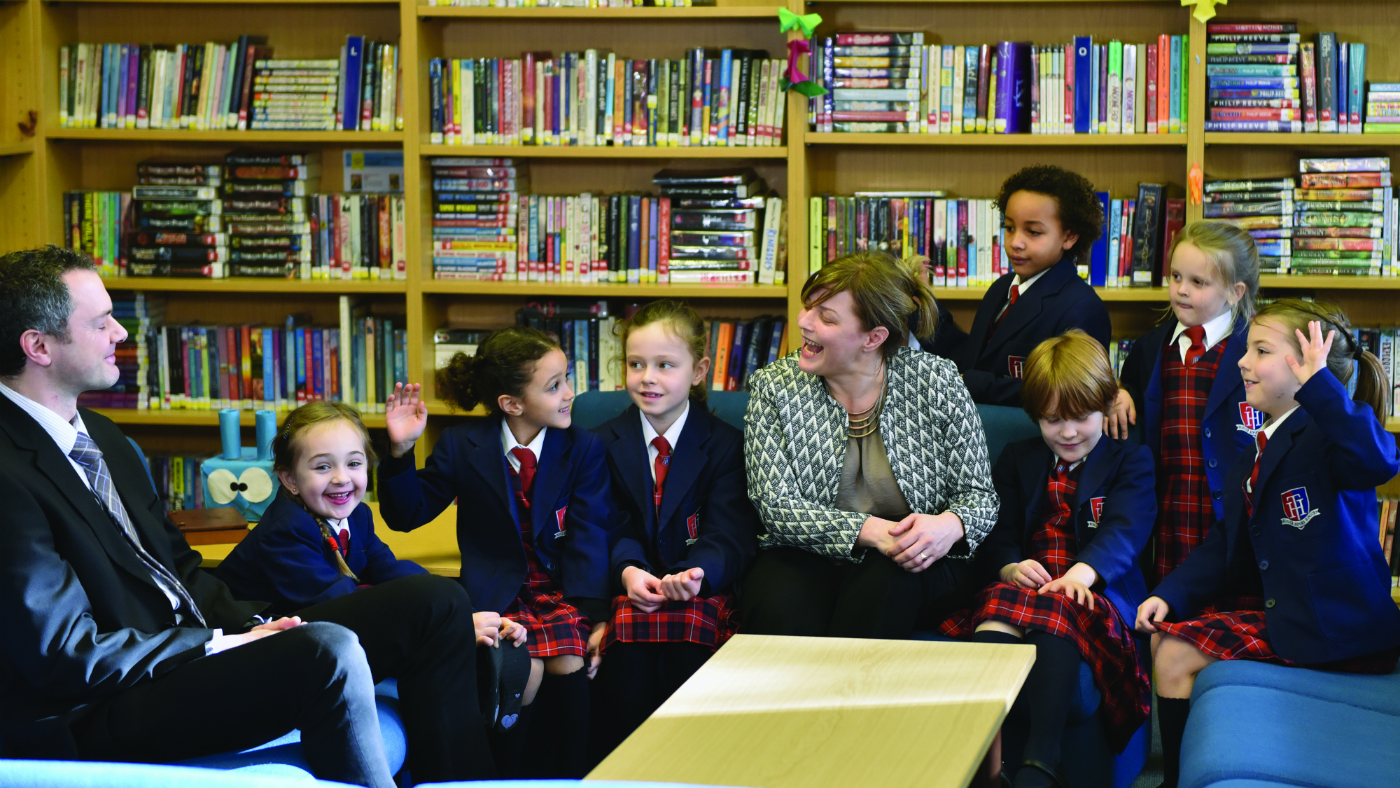Science at Talbot Heath school: robotics and gunpowder
The school opening up a world of opportunities for young people

A free daily email with the biggest news stories of the day – and the best features from TheWeek.com
You are now subscribed
Your newsletter sign-up was successful
It’s three years since the governors of a Bournemouth girls’ school asked the head to devise a vision for education in the future.
Girls and STEM The Week Independent Schools Guide Starting young: science and engineering at prep school
Other heads might have been daunted but Angharad Holloway, who has been head of Talbot Heath for nine years, jumped at the challenge.
“The governors said: ‘How should we be educating young people for 2030 and 2050? Go away and come back with a strategy,” says Mrs Holloway, who was a runner-up in this year’s i25 Awards, which recognise the independent school sector’s top 25 leading influencers and innovators.
The Week
Escape your echo chamber. Get the facts behind the news, plus analysis from multiple perspectives.

Sign up for The Week's Free Newsletters
From our morning news briefing to a weekly Good News Newsletter, get the best of The Week delivered directly to your inbox.
From our morning news briefing to a weekly Good News Newsletter, get the best of The Week delivered directly to your inbox.
“As an educationalist it was heaven to have the freedom and autonomy to devise a curriculum that combines intellectual rigour with intellectual curiosity and practical vocational skills.”
After months of consultations with universities, businesses, educationalists, parents and pupils Mrs Holloway became convinced that in order to tackle the challenges of the future and keep pace with technological change all pupils should have the chance to study subjects like design thinking, material science, engineering and ethics.
She believes that whatever their career plans everyone needs a “thorough grounding” in science and technology and is determined that pupils should leave school with the skills and traits needed by business.
“Our pupils need to be creative, adaptable, resilient and able to problem-solve so we have completed reworked the curriculum for everyone from three to 18,” she says.
A free daily email with the biggest news stories of the day – and the best features from TheWeek.com
“My educational vision is an integrated one, where schools, higher education and business work together and we now have a resource bank of 300 companies and ten universities who have agreed to support us. We’ve devised a curriculum and we are identifying where we want them to come in and co-deliver.”
From this term onwards the 600 girls at Talbot Heath will learn coding, robotics, electronics, computer aided design (CAD) and app design. Mrs Holloway likes the idea of “interdisciplinary learning” and science and technology will be woven throughout the curriculum.
For example, when pupils are learning about the Normandy landings during the Second World War they’ll get the chance to design and build pontoon bridges and test them out in the school swimming pool.
The youngest girls are devising ways for the three bears to design chairs that will support Goldilocks, while sixth form chemistry students can plot and point the structure of molecules digitally, see them transformed into a 3D hologram and walk inside them.
Learning about technology begins early at Talbot Heath. “In their art lessons our year 7 pupils are taught about the architecture of Renzo Piano, Frank Gehry and Zaha Hadid,” says Mrs Holloway.
“They design their own buildings using CAD and then we transfer the files into virtual reality files and they put on goggles and headsets to walk round their own buildings.”
The school’s new £7.6 million STEAM Hub, complete with a 600-seat auditorium, art studios, design workshops and an interactive wall and floor, is integral to the new curriculum.
“I believe that the future will be powered by STEAM – science, technology, engineering, maths and the arts,” says Mrs Holloway.
“For me the A is the most important element of STEAM because if you don’t have creativity we’ll never be able to take on the numbercrunching AI computers. What will distinguish us? It will be our creative thought.”
As well as embedding the new approach in the curriculum, the school will run interdisciplinary days on subjects such as AI and virtual reality.

Plans are afoot for an interdisciplinary day on gunpowder, where chemistry teachers will make gunpowder in front of the students and explain the chemical compounds while the history and English staff will look at the history of gunpowder and set creative writing assignments.
“We think it will create metaphorical sparks,” says Mrs Holloway.
“When the Dorset police explosives team came in they said that no other school had ever asked for a licence to make gunpowder.”
The Talbot Heath vision has attracted widespread interest. Educationalists from all over the world have contacted Mrs Holloway to find out more and the school is looking to share its facilities, knowledge and curriculum with local state schools, as well as further afield.
“In terms of education and curriculum development we are one of the real trailblazers in the UK,” she says. “It’s opening up a world of opportunities and I’m really proud of what we’re doing. It all goes to show that you can be a relatively small, provincial school and come up with an amazing idea, the impact of which can resonate globally.
“The more I speak to people the more they say that this is how we should be educating. When we recruit staff they know of our reputation and come through the door excited and wanting to teach here because we are teaching in a way that is far more rewarding, dynamic and exciting.
“The aim is to keep the intellectual rigour and good exam results for which the school is known but offer a vastly different curriculum, different skillsets and a different approach.”